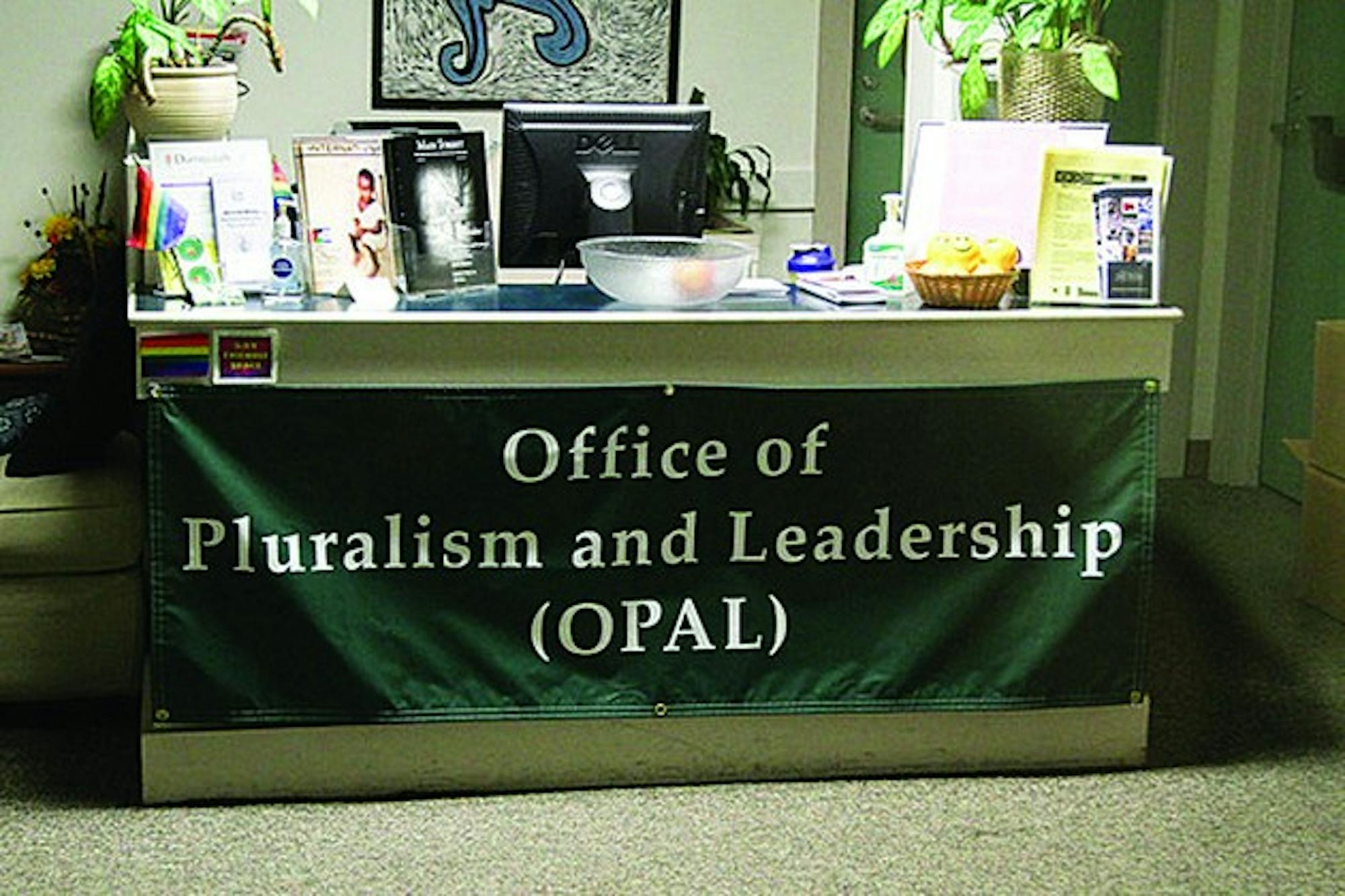The event was organized in response to several recent instances of discrimination, including racist graffiti in the Choates residential cluster on Jan. 19 and verbal harassment in the Class of 1953 Commons on Jan. 23.
Office of Pluralism and Leadership director Alysson Satterlund said that the primary intent of the forum was to create a space for students to share their experiences with bigotry at the College.
"We haven't always done a very good job of publicly acknowledging the impact of intolerance, bias, hate, harassment and sexism, and if we don't name it and take time to let people process it then we can't resolve it," Satterlund said.
Over 100 people attended the event, including Interim College President Carol Folt and Dean of the College Charlotte Johnson. OPAL Leadership Coordinator Karlos Santos-Coy said the turnout was an encouraging sign for the College's future climate.
"I feel with the newer staff at OPAL and an extremely engaged student body, the components are coming together to create meaningful solutions for the campus bias," Santos-Coy said.
Many students experience micro-aggressions, or moments of nonphysical acts of bias or harassment, Satterlund said. As a result, these students cannot take full advantage of their academic experience, because the disrespect affects affected students' mental health and energy. An intolerant atmosphere causes some students to disengage and lose the desire to remain involved with the College following graduation, Satterlund said.
Program coordinators T.M. Mosley and Aeriel Anderson, both OPAL assistant deans and minority advisors, encouraged attendees to be authentic when sharing stories of personal experiences. Those present were split into small, diverse groups with a range of races, religions and genders, as well as a mix of students, staff and administrators. An OPAL facilitator was present in each group.
Participants shared occasions when they had experienced, perpetrated or been complacent in bias and times when they had witnessed a positive interception against intolerance or bigotry at Dartmouth. After an hour of small group discussion, attendees reconvened to discuss major conversation themes.
The facilitators stressed that bias and intolerance are community issues and are not specific to any particular group. They also emphasized that community members must engage in dialogue to reduce ignorance.
A major consensus was that problems of intolerance pervade campus and must be recognized and acknowledged before change can occur. Many students felt that a significant portion of their peers were either unaware or chose to ignore the greater issues.
"I've usually just laughed off most insensitive comments," said Na Oh '16, who attended the forum. "This opened my eyes to a lot of stuff that I had never heard about."
Katie Gougelet '14 said that because minorities have been the target of recent bigoted incidents, the majority of campus does not fully understand the extent to which these instances impact minority groups.
"The main takeaway that I got from the event is that every injustice affects the entire community," Gougelet said.
OPAL hopes to continue hosting similar events in the future and is currently working to develop an inter-group dialogue model, Satterlund said. She believes that it is important for students to hear from others of different perspectives and backgrounds.
Campus groups are also aiming to reduce the instances of bigotry on campus. Representatives from the Inter-Community Council and Student Assembly were also present at the event. The ICC emphasized that the students, faculty and administrators are not "anonymous," and must work to build a stronger community.
Students interviewed had mixed reactions to the recent instances of bigotry. Gray Kelsey '13 said she is shocked and saddened to know that this type of intolerance occurs at Dartmouth, and believes that students must work to reduce the number of bias incidents that occur.
Many students still suffer from ignorance and fail to appreciate others' diverse experiences and backgrounds, Nathaniel Graves '13 said.
"I only know what it means to be me, and I don't know what it means to be the person standing next to me," Graves said. "Once we start to be appreciative of that, I think we will be able to come together as a group to overcome these intolerances."
Some students were less optimistic that OPAL's efforts and other community events were effective.
The students who typically attend OPAL events are already aware of the bias and intolerance that exists on campus, Claire Yao '16 said.
"The students who go to these things aren't the ones causing the problems," Yao said. "There needs to be a better way to tackle the issue at a campus-wide level."
Yao is a member of The Dartmouth Business Staff.
However, Mosley said she believes that the event was a "powerful first step."
The event was organized by the Office of Residential Education, the OPAL and the Department of Safety and Security.




